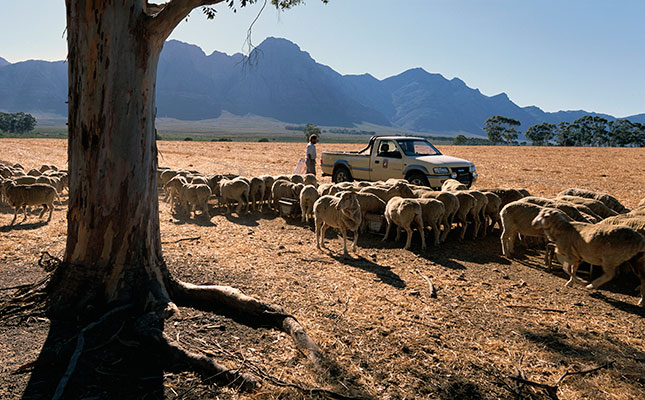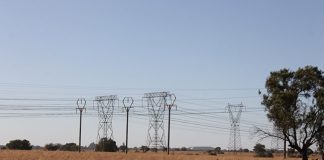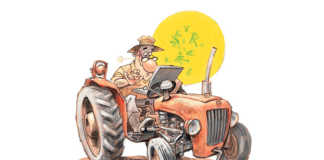
Photo: Getty Images
To consolidate government’s unsustainable debt trajectory, the Minister of Finance, Tito Mboweni, announced during the Supplementary Budget Speech in June that National Treasury would explore the implementation of a zero-based budgeting approach.
However, not many details were provided on how exactly this would be achieved, especially given the time and capacity constraints associated with implementing it within a budget cycle.
READ Empowering smallholders to access the supply chain
With this budget approach, government departments would have to start from a zero-base and justify their expenditure anew every financial year. Therefore, the budget for the current year was not simply an extension of the previous year.
The full implementation of zero-based budgeting involves a technical process of assessing individual departmental programmes against their mandates, purpose, cost to provide services, and outcomes achieved to determine the efficiency and effectiveness of the programme and its activities.
Beyond the technical aspects of the process, National Treasury would also have to facilitate a change management process, given that the approach is likely to be met with resistance, particularly from departmental and agency heads.
It is for these reasons that several countries have not fully implemented the principles of zero-based budgeting, but have rather adopted and incorporated aspects of the approach into their existing resource allocation frameworks.
This is also how we think National Treasury will implement the reform to complement its existing expenditure reviews, as well as the programme-based budgeting procedure.
The Department of Agriculture, Land Reform and Rural Development (agriculture department) could certainly benefit from the implementation of zero-based budgeting principles.
READ Coping strategies to deal with uncertainty
This is especially the case given that the department has a relatively modest allocation of around R17 billion to provide equitable access to land, integrated rural development, sustainable agriculture, and food security.
Therefore, it is crucial to eliminate any fruitless and wasteful expenditure from its budget. This could be achieved by subjecting a few programmes within the department to a zero-based budget analysis.
The first of these programmes would be the administration programme, which consumes about R2,7 billion of the department’s total budget.
The department would have to justify how it is that a non-core support programme continues to receive a significantly larger allocation than core programmes such as agriculture, land reform and land administration.
Likewise, about 25% of the department’s budget is consumed by the compensation of employees, even though the department relies on external agencies and institutions, such as the Land Bank, the Agricultural Research Council, the National Agricultural Marketing Council, and the Perishable Products Export Control Board, to execute its mandate.
Loans rather than grants
In addition, there are several projects that are considered to be problematic in their conceptualisation, design and execution. This leads to vague outcomes without any sustainable economic impact.
These programmes need to be reconsidered in terms of their mandate and be incorporated as part of more streamlined and redesigned support programmes for new entrants into commercial agriculture.
READ Investing in financial markets
These projects (mainly allocated to provinces) include: Ilima/Letsema: R548 million; Land Care: R82 million; and the Comprehensive Agricultural Support Programme (CASP): R1,4 billion.
Most of these programmes create a culture of dependency among communities and households, resulting in expenditure that government may not be able to sustain in the long term, given the country’s grim fiscal realities.
It is not good practice to fund current expenditure (seeds, fertiliser, feed, chemicals) through state handouts. It may be more prudent for these expenses to be financed with seasonal loans, albeit at subsidised rates through blended finance mechanisms.
Subsidies for other items such as fences, farm buildings, feedlots, boreholes, irrigation equipment, windmills, and animal improvement could work on a co-funding model, whereby the state reimburses the approved beneficiary according to government-approved tariffs.
The farmer would first pay for the improvement or asset (using his/her own resources or a loan from a land development fund), and then claim the refund from the relevant government office based on proof of expenditure and an on-site inspection to verify actual expense.
The refund can be offset against the outstanding credit amount. There is no need for a lengthy budget process and the many committees that must approve these CASP payments.
It is therefore critical that the CASP programme be reformed and changed as it sometimes takes three years for a farmer to get funding following initial approval and, at the same time, it is always the same farmers who benefit from the programme.
Worrying expenditure
Furthermore, there are other worrying signs in the latest appropriation bill for this department. For example, it shows an expense of R80 million for ‘rates and taxes on state farms’.
Most of these farms were supposed to be transferred to beneficiaries long ago and there should be no such costs for the state.
READ Tips for running a farm’s finances in tough times
There is a further allocation of R1,09 billion for the rural development programme, with very limited details on mandate and purpose, as well as vague interventions such as community mobilisation and national project implementation.
This is a real case for a zero-based budget approach to reassess the role of the state in rural development, which in essence is a murky confluence of tourism, roads, local government, COGTA, agriculture, land reform, water and sanitation, energy, and housing, amongst others.
If all these departments and local governments do their work, there should be rural development. There is no need to design specific ‘rural development’ projects. Alternatively, funds from these departments could be pooled together effectively for financing a sustainable land development fund.
In the economic development, trade and marketing programme, a budget of R880 million can be trimmed by cutting down the duplication on trade matters between the Department of Trade, Industry and Competition and the agriculture department, and on marketing between the Marketing Directorate and the National Agricultural Marketing Council. This could potentially save another R100 million.
Follow Farmer’s Weekly on Twitter.











